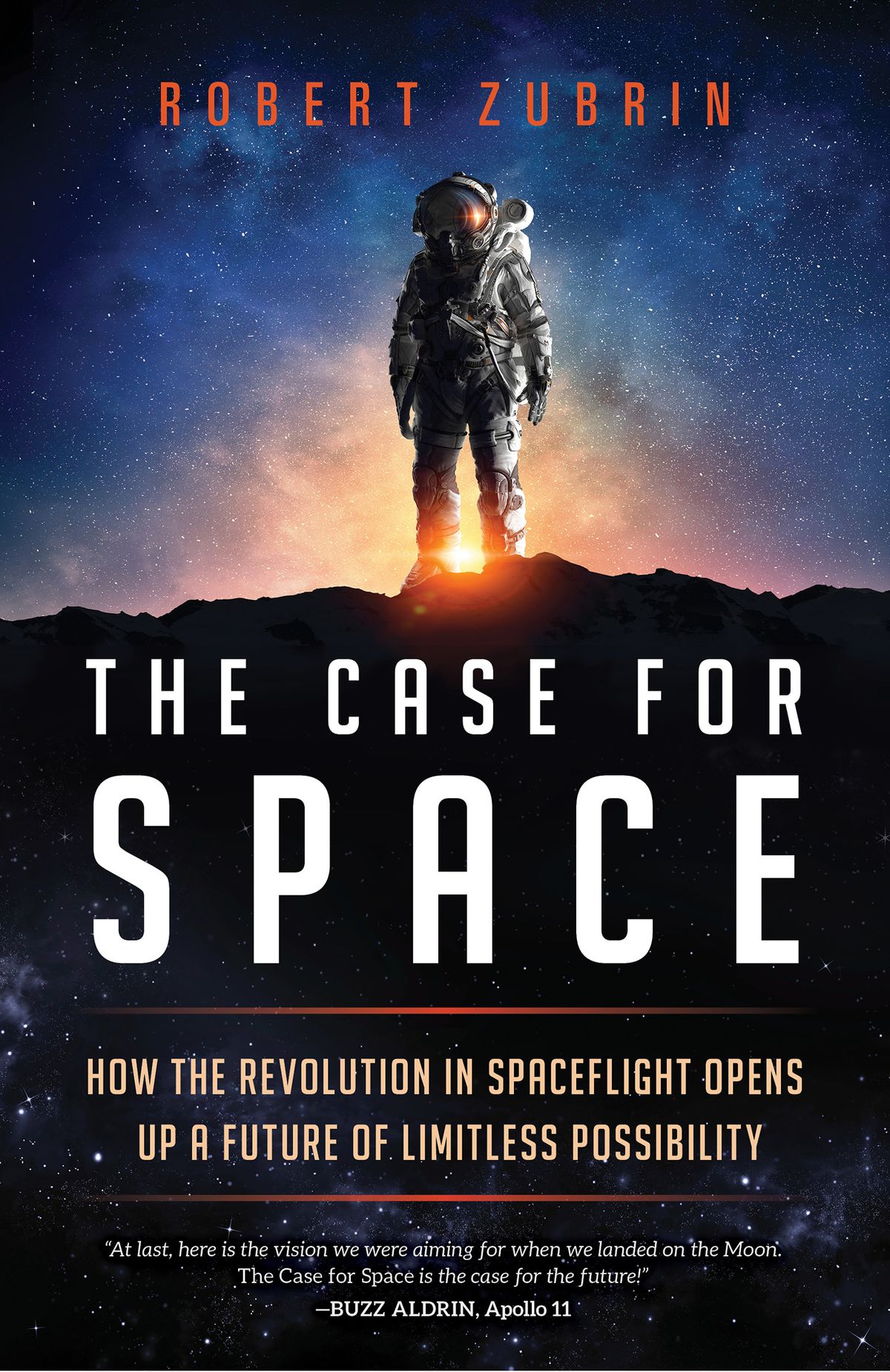You must be logged in to post a review.
The Case for Space: How the Revolution in Spaceflight Opens Up a Future of Limitless Possibility
The great Robert Zubrin is back advocating space travel again with The Case for Space. Zubrin, the president of The Mars Society, made the astronomical circles and limelight with his Mars Direct plan, which showed how we could send people to Mars with existing technology. These plans were shown in his book with Richard Wagner, The Case for Mars back in 1996, now more than twenty years old. We have since survived to the fiftieth anniversary of the moon landing.
With The Case for Space he has argued that we can go to the moon, Mars, and beyond. It all seems so real and possible from Zubrin, who brings enthusiasm to the subject, and a lot of thinking he shares here. Mars is tougher than the moon, but astronomers like the tough ones. Things have changed with Zubrin pointing out that we have found water on the moon and Mars, which means we would not have to carry a lot of it with us. A lot of the action now is not being organized by NASA, who are suffering from funding issues, but other nations instead, and especially private organizations.
Some might argue that science fiction is more important now in the sense that these plans seem to be so far in the future. They don’t all really need to be. This book would also be great for the science fiction field, which has departed, to an extent, from the profound cosmological tales of the future of old, with it now being more fantastical. The Case for Space can get writers more familiar with the latest research, engineering ideas and astronomical sensibility.
The book covers a lot of ground, and one can argue against Zubrin’s coverage of Planetary Protection, and also his argument to Terraform Mars. He calls Mars a dead planet, but, like explorers of old, we might be surprised by what we find there. People did not expect to find life in the deep-sea vents at the bottom of the ocean, for example. Scientists argue that life might exist below the surface of Mars. The planet has also been a place to exercise our dreams and nightmares. Zubrin argues that it is in our nature to Terraform or alter Mars so it can support unenclosed human life.
The Case for Space is very impassioned and will convince some that space exploration is worthwhile. The book discusses not just how we can go, but also why we must go. Naysayers still have a point in arguing that based on what we see about the rest of the world, we are not ready to go. The money could be spent on more humanitarian reasons, and there will be risks for those who take on the adventure. Space exploration does mean certain jobs for some: new technologies, interesting adventures, unexpected boons, and a step out into this vast mind-boggling expanse. Space explorers need to sell the public on the trip, arguing in a convincing way that probably needs to acknowledge the naysayers.
The argument is grand here, as to be expected from Zubrin, but it has gone beyond just science. Readers are likely to agree that we can and should do some of this. Maybe Zubrin has lost some of his curiosity about astrobiology, arguing that Mars is dead, and we should alter the planet before we can land people to search for life there. But what if we bring back some rocks and metals to sell here to pay for this? The astrobiological part, and maybe the landscape art opportunities, can still set some arguing for restrictions. We still also need to worry about nukes in nearby space, and based on the news, one might also conclude that these efforts need to be international, at least the nuclear energy part. The International Space Station and the satellite belt is only hundreds of miles above us. Perhaps by going, we can pull people together? As shown by this book, Zubrin certainly deserves things out there named after him for keeping this on our minds.
| Author | Robert Rubrin |
|---|---|
| Star Count | /5 |
| Format | Hard |
| Page Count | 336 pages |
| Publisher | Prometheus Books |
| Publish Date | 14-May-2019 |
| ISBN | 9781633885356 |
| Bookshop.org | Buy this Book |
| Issue | July 2019 |
| Category | Science & Nature |
| Share |






Reviews
There are no reviews yet.